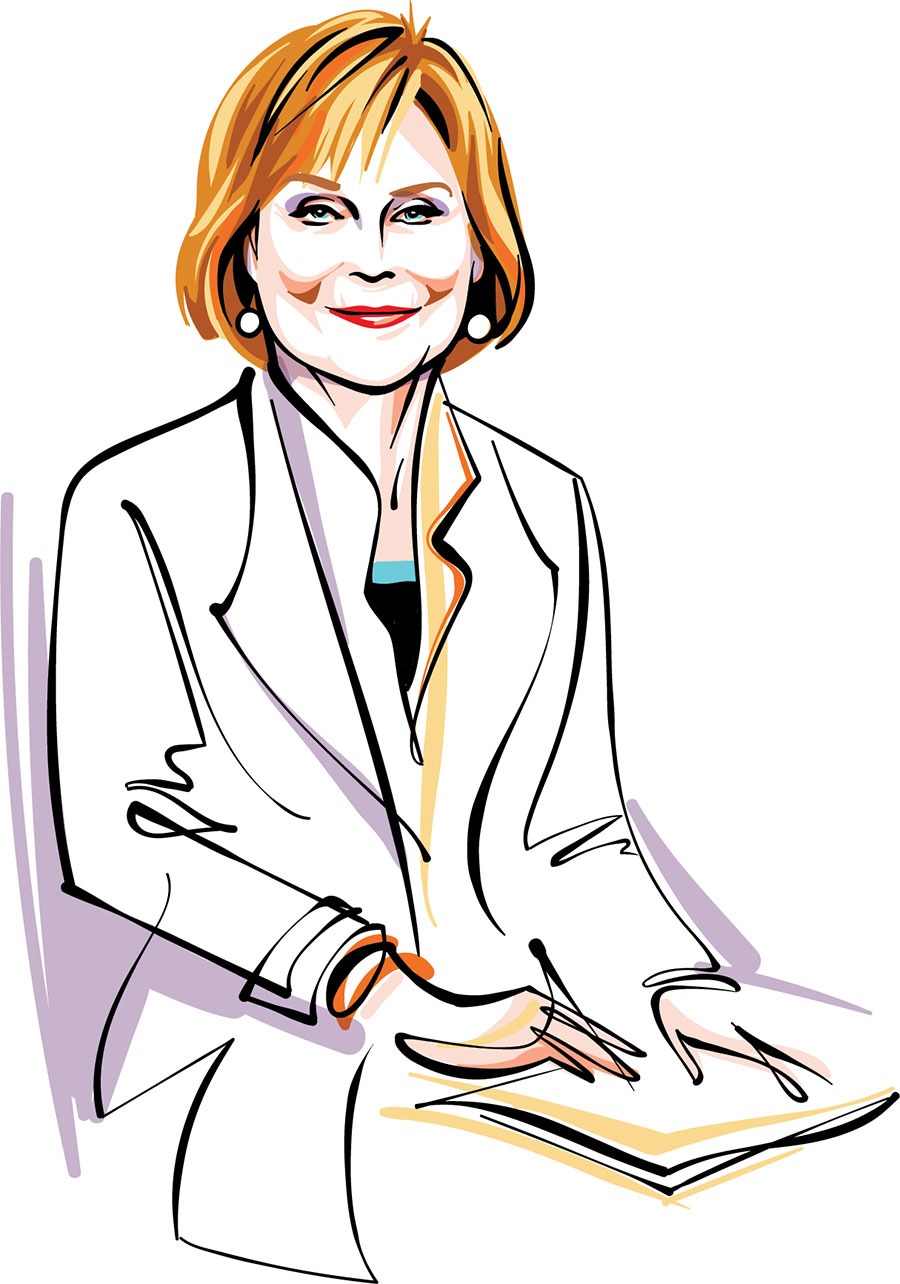■ My dad was a Republican and a fallen-away Baptist who ran independent Republican campaigns in the suburbs. My mother was a Democrat and a devout Catholic whose sister and brother-in-law were Democratic precinct captains. Every dinner at our house was a food fight, because they’d argue about everything. You learned pretty quickly that there were two sides to a story. We were blue-collar people with so little money, but every night we would have all of the Chicago newspapers there: the Daily News, the Tribune, the Chicago American, and the Sun-Times. We would always fight for who got the Daily News first, because we wanted to read Mike Royko’s column. In some ways Royko was one of my first journalism teachers. He would ferret out, in the clearest way possible, who was telling you the truth and who was lying.
■ During the time I was covering the El Rukn street gang for NBC-5, one of their hit men, Billy Doyle, called me at home late at night. We had done a documentary on El Rukn leader Jeff Fort in which we talked about him being illiterate, and Billy Doyle said the chief did not like that. I remember saying, “Billy Doyle, you don’t call people at home except to intimidate them.” He hung up. I called Fort’s lawyer and said, “This is a threat, and it’s going to force me to report it to the feds and the cops.” He called back and said, “Jeff says Billy didn’t mean it.” By then we had installed a security system in the house. And for two weeks, NBC hired armed guards who lived on the first floor. One of my neighbors looked out the window and saw them and said, “I don’t know if you know this, Carol, but there are men with guns on your porch.”
■ Jerry Springer’s hiring at NBC-5 was devised as a ratings stunt, but it became a press nightmare. We had a newscast people respected. We didn’t do silly stunts. We weren’t bleeding and leading. We weren’t chatty happy talk. We were just solid, straightforward news. If I sat on the set, straight-faced, and introduced Jerry Springer as a commentator on our newscast, I could never unring that bell. Ron Magers and I both knew we had to leave, but we didn’t know how it would be received — if it was going to look like a couple of precious anchors too big for their britches or a legitimate fight for journalism. The interesting thing was that Chicago not only understood, but they were on our side.
■ When public officials don’t answer you the first or second time, you give them the benefit of the doubt. The third time, you chase them down the street if you have to.
■ Our job as reporters is to go toward the disaster, not away from it, because we’re the eyes and ears. That’s why I ran down to the World Trade Center on 9/11. I knew that if I didn’t get there soon, the police lines around it would keep me out. I was in the CBS broadcast center early that morning, saw it was happening, and moved. You have this invincibility notion that “I’ll be careful.” Yeah, until the building comes down. I ran like my life depended on it, and it did. I lost the skin on my toes from taking my shoes off and running in the streets. When I fell, a firefighter threw me against the wall of a building that had an overhang. He covered me and protected me. He saved me. When it was over, I got the police officer’s name, the ambulance driver’s name, the bus driver’s name — everybody who helped me. But I did not have the presence of mind to get the firefighter’s name. And to this day, that just kills me.
■ I was on an elevator in the Merchandise Mart early in my career, and a guy said, “Are you … ?” And I said, “Yeah, I am.” And he said, “Wait till I tell my wife. She thought you were attractive. You look awful.” I said, “Sorry, what you see is what you get.” That takes you right back down to ground level.




Comments are closed.